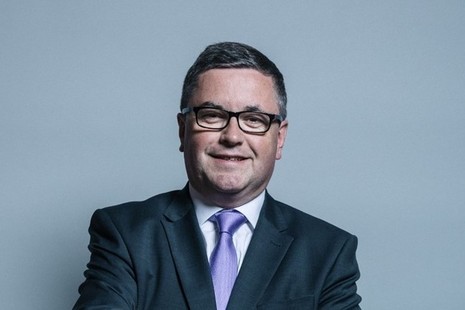By Tony O’Riley-
Damning findings about Martin Bashir’s Panorama interview with Diana, Princess of Wales, in 1995 means the governance of the BBC and how it operates will have to be examined, according to a senior government minister.
John Dyson’s report into how a BBC interview with Diana and the “very striking” reactions of her sons to its findings had raised “some very serious questions” for the broadcaster, Robert Buckland, the secretary of state for justice said.
“The government has to, in the light of these serious findings, consider the matter very carefully and comprehensively indeed,” Buckland told Radio 4’s Today programme.
“Because it wasn’t just the decision of a reporter or a production team, there were decisions made much further up the chain about the conduct of these individuals that have now proved, according to Lord Dyson, to be unfounded and wrong.
“And therefore, the government does have a responsibility to look very carefully to see whether the governance of the BBC does need reform in the light of these devastating findings.”
His comments came as a former chair of the BBC, Michael Grade, described Prince William’s criticism of the BBC as “unprecedented” and called for “serious structural change” within the corporation.
“I think there has to be an editorial board of independent, outside specialist non-conflicted journalists who can hold BBC journalism to account, and review its coverage of elections, Brexit, the Middle East and so on, but which will be a very good sounding board,” he said.
Grade said he did not believe any government would “use something as crude as this to bash the BBC with” because the public would not stand for it.
Buckland said “serious questions” were now being raised for the corporation on the morning after William launched a furious attack on the failings.
Buckland told Sky News: “I think an apology is a start but I don’t think it is the end of it, which is why, all of us, looking at its governance, looking at the way it operates, need to do that in order make sure that this sort of behaviour, this sort of thing, doesn’t happen again.”
William’s strong condemnation of the “deceitful” way the BBC secured an interview with Diana had “substantially influenced” its content, caused his mother paranoia, and even strained the relationship between his parents, was a poignant moment for future of how the media deals with the process through which it operates at every stage.
“She was failed not just by a rogue reporter but by leaders at the BBC who looked the other way,” he said, as a similarly scathing statement was released by his brother, Prince Harry, who said the deceptive practices exposed had played a part in their mother’s death.
There was also fresh criticism of the broadcaster from the graphic designer Matt Wiessler, who was commissioned by Bashir to create the mocked-up documents. He said there was a culture within the BBC whereby it admitted mistakes only “under duress”.
He told the Today programme: “I just feel that there is this culture within the BBC that the little people – me being the whistleblower – that we don’t really need to be addressed.”
Buckland said it was clear the focus of the report was on what senior leadership at the BBC had failed to do and what they got wrong when it came to the assessment of the team involved in the events that were subject to Dyson’s review.
“We’re not just talking about a much-loved national and international figure in the late Princess of Wales but a mother as well, and I think this came across, this sense of family sadness and tragedy,” he added.
An inquiry, conducted by Dyson, a former supreme court judge, found that Bashir had engaged in “deceitful behaviour” by commissioning fake bank statements to land the interview – a “serious breach” of the BBC’s editorial guidelines.
In his 127-page report, Dyson also criticised the conduct of Tony Hall, the corporation’s former director general, who was accused of overseeing a flawed and “woefully ineffective” internal investigation into the issue. When other media organisations began asking questions about how the BBC had secured the world exclusive, Dyson said the corporation “covered up in its press logs” what it knew.
Only recently, a new grouping of figures concerned about the future of public service broadcasting this week accused the government of undermining confidence in Britain’s creative industries with “drip-fed” stories suggesting plans for the privatisation of public broadcasters.
The accusations, made at the launch of the British Broadcasting Challenge group, coincided with the publication of an open letter to the culture secretary, Oliver Dowden, signed by more than 120 people, including the writers Hilary Mantel and Salman Rushdie, who voicing alarm about the BBC’s future.
A strategic review of public service broadcasting is already under way, with an advisory panel appointed by the government in Novembers.




